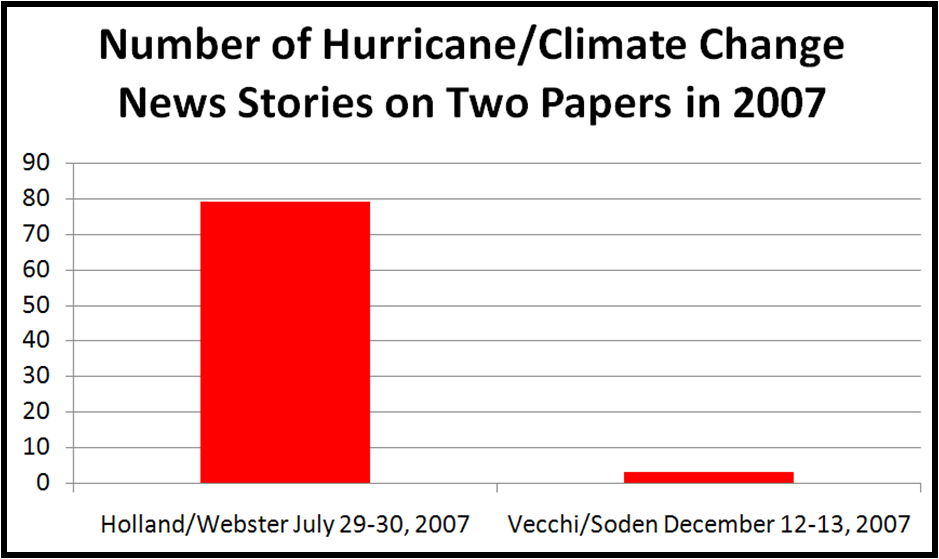Governance as Usual: Film at 11
July 9th, 2008Posted by: Roger Pielke, Jr.
I have long considered Andy Revkin of the New York Times to be the dean of reporters covering climate science. But there is one issue that I think he consistently gets wrong, and that is his coverage of the politics of internal bureaucratic-politician conflicts. His story in today’s NYT is a good example.
Andy writes, breathlessly:
Vice President Dick Cheney’s office was involved in removing statements on health risks posed by global warming from a draft of a health official’s Senate testimony last year, a former senior government environmental official said on Tuesday.
Watergate this is not. In fact, the editing of testimony probably occurs just about every time that an employee of the executive branch is set to testify before Congress, and this has been standard operating procedure for decades. The more significant the issue the higher up the chain of command the review takes place. The procedure is clearly outlined in OMB Circular-21 (PDF):
Unless a specific exemption is approved by OMB, materials subject to OMB clearance include:
• All budget justifications and budget-related oversight materials;
• Testimony before and letters to congressional committees;
• Written responses to congressional inquiries or other materials for the record; . . .
Now if you or I were in a decision making position in the Executive Branch we might make decisions about what to allow in testimony differently than those in the current administration. But make no mistake, such decisions are under the discretion of the administration. Federal employees who don’t like those decisions are free to go public or even resign (both occurred in this case).
A spat between elected and career officials may or may not be significant, as they happen all the time. My problem with the track record of coverage of such disputes on climate change by the NYT is that it they have been very misleading about what the news is in such situations. The headline reads: “Cheney’s Office Said to Edit Draft Testimony” suggesting that there is something improper or perhaps even illegal about the editing of testimony in the Executive Office of the President. There is not.
Revkin and I have disagreed on this same issue before. At the time I called the NYT coverage of Bush officials editing Bush Administration documents a “manufactured controversy” and I think that statement applies to today’s revelations as well.
Here are the comments I left on Andy’s blog, to which, perhaps understandably, he reacted a bit snippily:
Andy-
This is a “dog bites man” story in the form of “pit bull bites man”. It is red meat for those who do not like pit bulls, but at the same time, everyone knows that pit bulls bite.
Can you name a presidential administration in which senior officials did not play a role in shaping testimony on important issues? This is a loaded question, because of course you cannot.
I’m no fan of Bush or Cheney, or their approach to climate, but at the same time I think that it is only appropriate to present to your readers an accurate sense of how policy making actually works. In this case, Marburger’s explanation [cited on Andy's blog] is exactly correct.
It is perfectly fair for people to disagree with the actions taken by the Bush Administration on this testimony, but was it improper or even illegal? No, not even close.
Science does not dictate particular policies, and presidential administration’s have wide latitude in what information they present and how they present it. This is spelled out in OMB Circular 22:
http://www.whitehouse.gov/omb/circulars/a11/current_yea r/s22.pdf
Dog bites man is not news.
[ANDY REVKIN says: Roger, maybe you forgot to read the entire 2004 story, which made the points you’re making now.]
— Posted by Roger Pielke, Jr.
